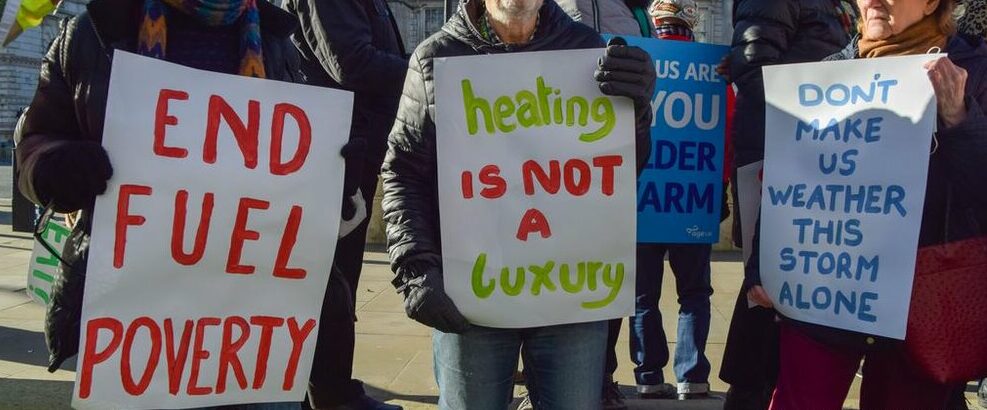The state of policymaking nowadays is so bad that The Economist recently said the plan to keep the lights on in Europe this winter is as follows: “Europe has so far been unlucky in its energy war with Russia. If it is to keep the lights on until the spring, that needs to change.” Hoping for luck is not what we’d call a plan. Though it may be better than what the planners have in mind, namely a loopy scheme from the G7 to try to cap global energy prices, what the New York Times called “an aggressive but untried plan to manipulate the price of oil, the largest commodity market in the world.” Untried being a polite word. Apparently the notion was to let Russia keep selling oil while capping the price of that oil, as if (a) Russia would go along with the plan now that it has lined up non-western buyers for its oil, and (b) price caps ever ended up in anything other than shortages, rationing and backdoor dealings.
The authorities thrash around trying to make sense of current events and of economics, failing at the former in significant measure because of failing at the latter. Biden offers all sorts of fiddles to lower gas prices with midterms looming, from the gas tax holiday to leaking oil from the Strategic Petroleum Reserve to begging ugly dictators to pump more of the stuff, which French President Macron blew up for him on camera, while standing adamantly against getting more oil from goody-two-shoes Canada. But of course there’s a kind of logic here (and we offer as a rule of thumb that when a policy seems incoherent it is wise to examine it from different angles until it becomes coherently wrong): Short-run expediency requires relief from high energy prices but the long-term plan remains to extinguish hydrocarbons.
NBC brings in a professor of economics, of all things, to explain “Why Biden’s gas tax holiday is a terrible idea/ Suspending the federal gasoline tax does nothing to address the root causes of the price spike.” First he points out that the federal tax is only 18.4 cents per gallon, and since some of the benefit from cutting it will go to the seller, buyers will only save about $2 per tank of gas. (Another NBC story made a higher estimate, of between $3 and $6.50 per tank.) Moreover, “The dirty secret of most energy subsidies is that they disproportionately benefit the wealthy, because rich families can afford to keep buying fuel even when it becomes expensive.”
We’re unpersuaded that not taxing something is a subsidy. Or that because gas taxes mostly go to road and bridge maintenance and improvement, cutting taxes will mean even worse government in the basic core area of infrastructure. But keep reading, because now we get to the key part:
“the tax holiday does nothing to address the root causes of the gas spike. Prices have risen in part due to Russia’s invasion of Ukraine, which led Western countries to stop buying millions of barrels of its oil per day. And America’s refineries haven’t resumed their pre-pandemic levels of production, further tightening supply and increasing prices. Changes in the gasoline tax won’t increase oil production or refining. Worse yet, the gas tax cut would weaken the only real solution to high fuel prices — the profit motive.”
Cutting taxes will weaken the profit motive? No, actually not. The professor eventually stumbles onto the real issue:
“Every previous surge in gasoline prices has been met with increased exploration, drilling, pumping and refining…. high prices incentivize the producers of gasoline to increase their supply, in order to take advantage of the fat but fleeting profits they can earn by satisfying demand at higher than normal prices. The extra production from many oil companies then drives prices back down. This has been the pattern in every decade since the 1970s. This time around, the Biden administration has been throwing obstacles in the way of drilling and refining, so the profits need to be even higher to justify investments into boosting production.”
Oh. That. Yup. And the punchline: The lack of enthusiasm to increase production “is astounding to anyone who is familiar with the oil and gas markets and shows just how hostile the Biden administration has been to domestic fossil fuel production.” D’oh.
In unrelated news, NBC explained:
“President Joe Biden’s administration on Friday proposed up to 10 oil and gas lease sales in the Gulf of Mexico and one off the Alaska coast over the next five years – going against the Democrat’s climate promises but scaling back a Trump-era plan that called for dozens of offshore drilling opportunities including in undeveloped areas... New drilling off the Atlantic and Pacific coasts would be blocked, after being considered under Trump.”
And naturally energy firms are reluctant to stake vast sums of investors’ money on projects liable to be annihilated at the next politicians’ whim. What’s amazing is not seeing it coming.
Or thinking regulations designed to make energy even more expensive is somehow the remedy. A press release from Environment and Climate Change Canada entitled “Government of Canada supports innovation in the fuel industry with final Clean Fuel Regulations” said:
“Putting in place smart climate policies that support innovative technologies will build a stronger Canadian economy as we drive down polluting emissions towards net zero. Today, the Government of Canada is sending a clear signal to investors and industry that now is the time to bring more clean technologies, energy efficiency practices, and affordable low-carbon fuels to market.”
But what it’s really doing is sending a clear signal that now is not the time to bring more conventional energy to market. Meanwhile the Economist assures us that all will be well provided we don’t like fools start using oil and gas to give us heat, light and so on, or rather, that we do but don’t:
“This year’s energy shock is the most serious since the Middle Eastern oil crises of 1973 and 1979. Like those calamities, it promises to inflict short-term pain and in the longer term to transform the energy industry. The pain is all but guaranteed: owing to high fuel and power prices, most countries are facing soggy growth, inflation, squeezed living standards and a savage political backlash. But the long-run consequences are far from preordained. If governments respond ineptly, they could trigger a relapse towards fossil fuels that makes it even harder to stabilise the climate. Instead they must follow a perilous path that combines security of energy supply with climate security.”
We’ll settle for the former and take our chances with the latter. After the usual hectoring, it observes that:
“Mr Biden, who came to power promising a green revolution, plans to suspend petrol taxes and visit Saudi Arabia to ask it to pump more oil. Europe has emergency windfall levies, subsidies, price caps and more. In Germany, as air-conditioners whine, coal-fired power plants are being taken out of mothballs. Chinese and Indian state-run mining firms that the climate-conscious hoped were on a fast track to extinction are digging up record amounts of coal. This improvised chaos is understandable but potentially disastrous, because it could stall the clean-energy transition.”
No. What has stalled the “clean-energy transition” is the public realization that it’s all transition and no energy. Or as NetZero Watch put it snidely, “Europe’s Real Energy Transition: From Gas Back To Coal”. If the other stuff were working, consumers and utilities would not be staggering back toward the coal pit, and governments certainly would not. Still, who are you going to believe, me or your own eyes?
In this piece the Economist reluctantly broaches something like reality: “Public handouts and tax-breaks for fossil fuels will be hard to withdraw. Dirty new power plants and oil- and gasfields with 30- to 40-year lifespans would give their owners more reason to resist fossil-fuel phase-outs.” And so “One priority is finding a way to ramp up fossil-fuel projects, especially relatively clean natural gas, that have an artificially truncated lifespan of 15-20 years so as to align them with the goal of dramatically cutting emissions by 2050.” Right. Finding a way. So businesses will invest vast sums knowing they’re about to be crushed by the state.
Normally such a plan would require them to be chumps. But the solution here, apparently, is for governments to lose money on every sale but make it up on volume: “The trick is to get business to back schemes designed to be short-lived. One option is for governments and energy grids to offer guaranteed contracts over this period that provide an adequate return on the understanding that capacity will be shut down early.” Another is to pretend stuff is happening that’s not. Hence “This does not mean easing up on the drive towards renewables – the most successful part, to date, of the world’s generally poor response to the climate crisis.” If that’s success, what would failure look like?



By adopting green theocracy to retain readers presumably, the Economist has contributed to peak energy ignorance.
The Economist has been ignorant of all things scientific, as well as all things economic, for at least a couple decades. The Economist is now an oxymoronic term.
Testing 1,2,3. There is a way to permanently de-weaponize them John. What most people don't realize is that unlike most of the scientific theories to date (from Galileo on up), the CO2 theory has never been put to a formal experimental test of sufficient scale. I have designed an ATMOSPHERIC CLIMATE TESTING SIMULATOR that will put an end to the entire CO2 debate once and for all. Check it out at http://www.dextras.com/climate.html and let me know what you think.
Best regards,
KD
P.S Yes, this experimental test will cost millions but compared to the trillions that buddy boy Biden is about to unload on taxpayers for electric car subsidies, it's a pittance. In any event, what's the alternative ? There isn't any. It's high time for the soft scientific rubber to meet the hard engineering road. It's no different for us than it was for Newton, Boyle, Joule, Faraday and Einstein. The days of doing earth shattering experiments on the cheap are over. Let's just get on with it and move on.